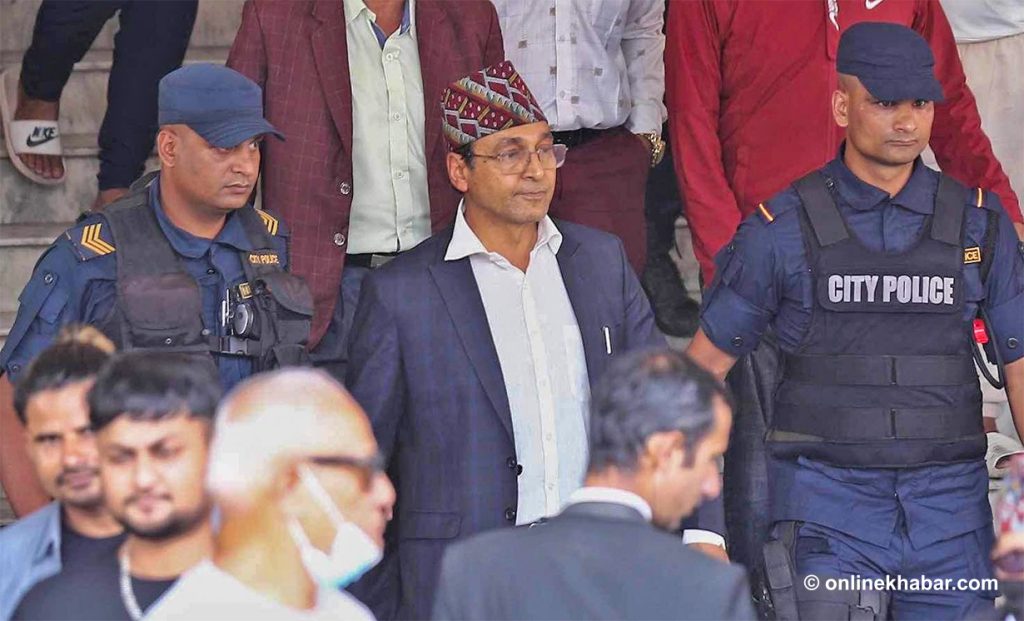
The Supreme Court’s recent controversial verdict on the Ranjan Koirala v. Government of Nepal case not only raises questions over the competence of the Chief Justice or the justices involved but also the entire judicial system has come under question. However, with another bench of the court deciding to rehear it in response to a government appeal for revision, the court has an opportunity to correct its mistake.
Due to such a verdict, Nepalis have lost their faith in the judiciary. Various previous acts of the government, legislature, and even the judiciary have already made Nepalis feel inferior, and this case has been the next item on the list. The existence of democracy and transparency has come under doubt. Specifically, this verdict has made every citizen realise that the apex court of the country is establishing a wrong precedent and now the judiciary is no more independent and transparent.
The fair judiciary is the citizens’ last resort and the criticism of court is a grave issue. The protest against the verdict by the citizens means that citizens lost faith in the judiciary and the whole society is disturbed by the verdict. In this case, the Kathmandu District court had found Ranjan Koirala (Appellant in Supreme court) guilty of the premeditated murder of his wife in January 2012 and sentenced him for life imprisonment with confiscation of his property. Later, the then Patan Appellate Court had also upheld this verdict. Thereafter, Koirala had filed an appeal at the Supreme court, in response to which the court reduced the sentence to eight and a half years. Indeed, the Supreme Court agreed with the finding of the lower court that Ranjan Koirala had murdered his wife and burned her body to destroy all evidence, cut the sentence short by using the discretionary power under No. 188 of the then Muluki Ain, Chapter on Court Procedure. The justices argued that Ranjan Koirala should be release to take care of his children and the life imprisonment punishment would be rigorous and could cause an adverse effect on his children.
The question here is whether the discretionary power should be used by the justices to reduce the punishment for a murderer, who even struggled hard to destroy all the evidence to save himself, who helped neither the court nor investigation officers in the investigation. We need to ask whether the ground argued by the justices in the decision, by victimising the children is satisfactory.
The discretion used by the authorities shall be according to the rules of reason and justice. The discretion must be exercised within the limit in which the rational decision should be taken and must be legal and regular.

In the criminal justice system, sentencing is very crucial as it revolves around balancing the interest of the society and the accused. There is always a social goal behind sentencing for any case. While applying discretionary power, the judges have to balance the personality of the offender with the circumstances in which the offense has been committed and the gravity of the crime.
But, in the present case, the offender was himself a senior police officer and was familiar with the law very well. Apart from this, the gravity of the crime was heinous. The murder of the wife is premediated and after that, the offender burned the body to destroy the evidence and never accepted that he killed his wife. Similarly, the ground of children presenting them as victims seems flawed as the children are already above 20 years of age now; it is a misuse of discretionary power by judges. Nowhere in the law, there is such a provision that this sentence could be shortened.
Indeed, the justices violated the prevailing law and precedents, while using the discretionary power. In a previous case (‘Government of Nepal vs Sher Bahadur Basnet), the court had held that basic principles of sentencing could not be taken lightly by judges while using their discretionary power and the use of discretionary power should not be prejudicial to the lawful intent.
This verdict, a wrong precedent, in itself presents a wrong image of the judiciary in society. The court, while delivering the judgment, needs to foresee the effect of the decision in society. The discretionary power must be rational, legal, and regular. Hopefully, the court would correct its mistake when it hears the case again as decided in response to the government’s appeal for revision to the verdict.
Nayak is a student at the National Law School of India University, Bengaluru.






















